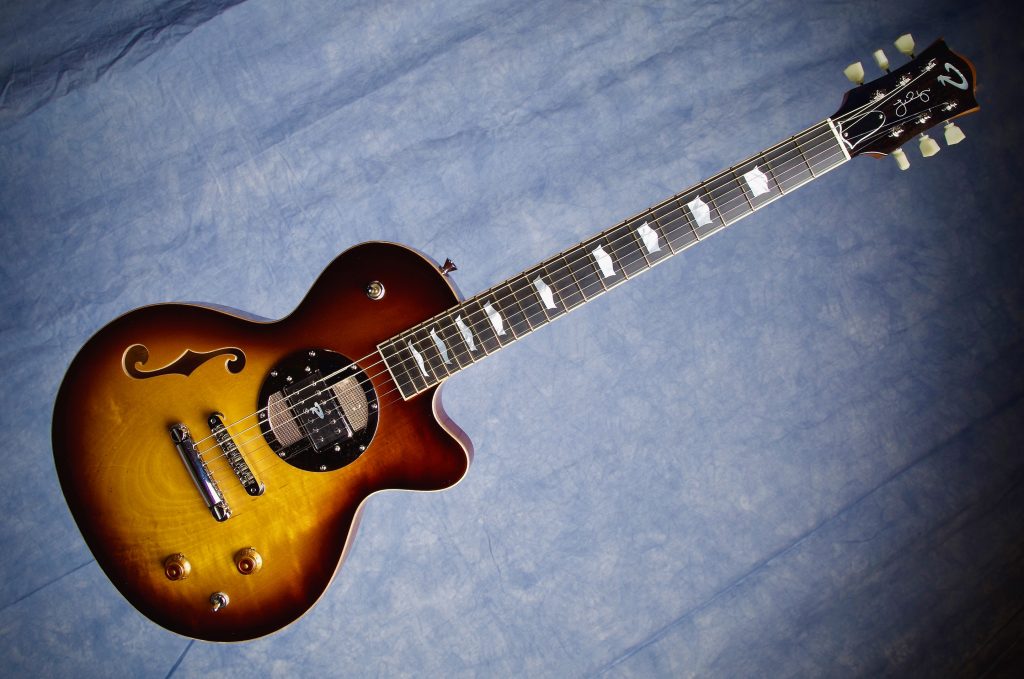Over the years I’ve ordered 17 ground-up custom guitars from small/boutique builders, with one more in a builder’s queue and another in the “need to work out the particulars” stage. Juha Ruokangas recently devoted one of his Wednesday live discussions to this topic. He introduced it as “five reasons NOT to buy a custom guitar,” which was a bit of a tease given that most of Juha’s business entails custom orders, but the issues he raised were well worth considering. After listening to the show I decided to address the issues from the opposite side of the table: the client side. Someone who also listened to Juha’s show might notice that there is one topic I left out. It’s a complicated one, especially from my side of the table, and I’d rather save that one for another day. It tends inflame people’s passions and, as a result, discussions tend to go off the rails very quickly.
So here are Juha’s discussion points, with a brief summary of my perspective/experience, followed by my advice. Enjoy, and feel free to comment on this topic.
If a deal sounds too good to be true, it probably is I’ve never chased a deal in a custom build. In fact, at least with respect to guitars, I very rarely chase a deal at all. I also resist (as best I can) the impulse to get sucked in by the hive mind of places like The Gear Page. Certain builders become flavor-of-the-month, most often because one or more influencers wax poetic about them. I’m not immune to influence, for sure, but the main influences for me are pros such as Steve Kimock and David Torn, both of whom approach guitars from a distinctly pragmatic perspective. That probably comes with being a working musician and having to justify one’s purchases at a different level than those of us who have disposable income to throw at guitars.
KD’s $.0.02: try to value the stuff that matters: quality work, quality relationships, and respect for others, over money.
Fast. Cheap. Well-made. Pick two, because you can’t have all three. My only priority here is well-made. When I know I want a custom-built guitar I’m always willing to accept the price and time frame that suit the builder’s needs. As a number of builders with whom I’ve dealt can attest, I’m generally a patient and understanding client. Oh, and I pay in full and on time. Having done a fair amount of custom work for clients in my other life, I am quite familiar with the builders’ perspective with regard to schedules and payment.
KD’s $.0.02: patience is a virtue! Also: if you’re in the market for a custom-built guitar, it is highly probable that you have more disposable income than the builder will ever have. Try to keep that in mind.
Know what you’re getting into. With only one exception, the Scott Walker Phoenix, I had first-hand experience with the builder and his instruments going into every custom build I’ve commissioned. In the case of the Phoenix I had a good friend (Steve Kimock) who had a long-running relationship with Scott. As well, Steve had a significant hand in the design of that model and gave me a detailed account of the thinking behind each element. Aside from personal contact, every builder on my list had a well-established track record at the time I ordered my first custom guitar from them. I’m lucky to have professional musician friends such as Kimock, David Torn, Eric Johnson, and Bill Frisell, all of whom I’ve consulted with at one time or another about custom builders and custom instruments. I’m also lucky to have traveled widely, often from my former “day gig,” and visited guitar shops and guitar shows in many different locations. As well, my relationships with various builders has translated into semi-regular attendance at NAMM. All of this happened because of effort on my part (and some expense, to be sure) to make it happen.
KD’s $.0.02: make those efforts: to befriend musicians and guitar builders, to get yourself to places where there are guitar shows or guitar shops where you can play guitars you wouldn’t ever find at your local Guitar Center. This might also include the homes of fellow players who have collections of small-builder instruments. (I realize that, as I write this, what I am recommending is difficult if not impossible) Don’t expect the world of boutique instruments to come to you. Although in fact this has happened to me; Jamie Gale, curator of the Boutique Guitar Showcase, has parked his RV full of guitars in my driveway for an overnight during one of his roadshow trips. I treated him to local barbecue and a bourbon tasting. The point? Get out there and make friends with people in the world you want to be part of. You never know what might happen.
Communication, communication, communication
Everyone’s personal style is different, and this applies to both builders and clients. I try to figure out what the builder is comfortable with and use that as the primary avenue for communication, rather than insist that the builder go out of his way to honor my preferences. All I care about is that the communication is clear, reasonably timely, and respectful. I especially respect builders who limit their telephone or email time fairly strictly; time spent in those tasks is time NOT spent building instruments. (or sharpening tools…) I’ve never, ever had a problem communicating with a builder, with one exception. That exception (communication was all through an intermediary, the dealer through whom I placed the order) was part of the up-front ground rules on which the builder in question has always insisted. I was fine with that, but the build ended up taking well longer than expected, with less communication from the builder than I (or the dealer through whom I ordered) would have liked. It wasn’t that big of a deal – the delays were for good reasons; the guitar eventually arrived and was just as I’d ordered – but it would have been nice to have been kept a little more in the loop.
KD’s $.0.02: working to improve one’s communication skills – in both directions – is ALWAYS worthwhile. And always, ALWAYS be respectful of a small-scale builder’s time. Building custom guitars to a high standard is extremely time-consuming work.
Don’t buy a custom guitar expecting to make money on the deal.
In the case that I just mentioned, on the day the guitar was delivered (which was almost a year after the originally promised delivery date, due to unforeseen events at the builder’s end, but also due to the builder’s rapidly expanding demand curve) a dealer e-mailed me with an offer of $5000 more than I had paid for the guitar. It was the perfect storm of a crazy increase in demand, due largely to certain Gear Page influencers, a builder who is somewhat reclusive and deeply perfectionistic in his craft and whose production is quite small under the best of circumstances, and (let’s be honest) to the fact that the influencers in question created a perceptual tie with this builder’s work to that most mythical of beasts, the 1959 Les Paul. (no, I didn’t sell the guitar then, although I eventually did, for somewhat less than that next-day offer, but for well over what I’d paid for it) So yes, it can happen. But it’s a vanishingly rare event. And, to be honest, the whole fools rush over said builder’s instruments ultimately had the effect of souring me on his work. As did the fact that, although over the years I owned several of his instruments, there was never any direct contact between us. In any event, every time I order a custom guitar it’s with the expectation that one of my grandkids will own this one day. Moreover, it’s consistently been the case that one custom build led to another (and another and…) with the same builder and, ultimately, to friendships that I value far beyond the instruments themselves. Of course at this point I have many more custom guitars than I have grandchildren… …but there are plenty more members of that generation in my extended family thanks to my nieces and nephews, with more to come I’m sure.
KD’s $.0.02: be prepared to accept that any given custom order could turn out to be an expensive mistake (although I would characterize that as a “learning experience” rather than a mistake, and the expense as “tuition”), an heirloom that your grandchild will treasure, an instrument that will inspire you to create new and wonderful music, or just another guitar. While you’re at it, resist the urge to pass judgement, in either direction, too quickly. Having acquired quite a few new guitars (both custom builds and off-the-rack) over the years, my experience has been that it takes at least five years for a new guitar to find its voice and its place in my woodpile. Both the guitar and your judgement about it may change dramatically in that time. Aside from obvious issues/errors/problems, try to give any new guitar that matters that long before you make a decision to substantially modify or sell it.


Thank you Kingsley for catching the ball and continuing the conversation! Excellent points in your text – will be sharing this definitely to our followers. 🙂